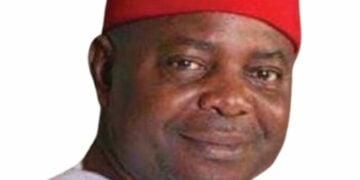Nigeria’s democratic journey is at a critical juncture. The integrity of the electoral process, particularly the fair and efficient transmission of votes from polling units to collation centres, remains a significant concern in rebuilding and sustaining public trust. Elections and voting are fundamental to democratic governance, enabling citizens to exercise their right to choose leaders who represent their interests.
However, despite the importance of elections, Nigeria’s electoral processes have long faced persistent challenges, particularly in result collation and transmission. Electoral integrity has been undermined by recurring violence, voter suppression, ethnic tensions, and low voter turnout. With the 2027 elections approaching, these issues must be addressed decisively. A robust voting system is essential to secure result transmission and ensure free, fair, and transparent elections.
The Case For Electronic Voting
Electronic voting, enabled by technological advancements, involves voting through electronic means to manage ballots and election outcomes. Voters make their selections using a computer or digital interface. Globally, electronic voting is recognized as a reliable solution to electoral irregularities.
While Nigeria has made progress in adopting electoral technology, notably through the Electoral Act 2022, challenges persist. This Act legalized the use of the Bimodal Voter Accreditation System (BVAS) and the INEC Result Viewing Portal (IReV) for electronic result transmission. However, the implementation of electronic voting remains problematic.
The 2023 general elections exposed numerous technical shortcomings. Reports highlighted glitches, slow uploads, and server failures. Although BVAS improved voter accreditation accuracy, issues during result collation fueled public suspicion and legal disputes. In remote areas, poor network connectivity hindered the effectiveness of electronic voting. Additionally, cybersecurity threats, unreliable power supply, and weak ICT infrastructure continue to challenge the process.
Restoring Integrity Through Electoral Reform
The integrity of elections depends heavily on the competence of the electoral body and the credibility of polling units, which form the foundation of any trustworthy election. Over the years, Nigerian elections have been marred by widespread malpractice before, during, and after voting. Ballot box snatching, voter intimidation, result falsification, and vote buying have severely eroded public confidence in the electoral system.
To prevent a recurrence of these issues, a secure and transparent system for electronically transmitting results from polling units to collation centres is critical. Strengthening electoral processes will enhance the reputation of the electoral body and ensure citizens can freely exercise their voting rights.
The Electoral Act 2022 was a significant milestone, but further reforms are necessary. While the Act permits electronic transmission of results, it lacks a clear mandate, making this method binding. This ambiguity caused conflicts during the 2023 elections, where manual collation often overrode electronic submissions, undermining the process’s credibility. To safeguard the 2027 elections, the Act must include precise legal definitions and penalties for actions that compromise the integrity of electronic voting.
Strategic Recommendations For 2027
Looking ahead to 2027, Nigeria must prioritize the following reforms:
1. Amend the Electoral Act 2022 to establish electronic voting and result transmission as the sole, legally binding method.
2. Increase investment in ICT infrastructure to support reliable and secure electronic voting, particularly in rural areas.
3. Enhance cybersecurity protocols with robust authentication systems to protect against hacking and manipulation.
4. Ensure a consistent power supply at polling units to maintain uninterrupted voting and result transmission.
5. Promote widespread public education to improve understanding, trust, and participation in the electronic voting process.
6. Guarantee INEC’s independence through transparent and non-partisan appointments.
7. Reform security agencies to prevent electoral violence and ensure voter safety.
8. Eliminate vote buying and thuggery through stricter enforcement of electoral laws.
The future of Nigeria’s democracy hinges on the credibility of its electoral system. Implementing electronic voting and result transmission, alongside necessary legislative and structural reforms, will play a pivotal role in restoring public trust. With strong political will and institutional support, Nigeria can deliver credible, transparent, and inclusive elections in 2027.
~ HRM Ikwu is the traditional ruler of Igbos in Plymouth, United Kingdom, a Cardiologist and a Public Affairs Analyst.





